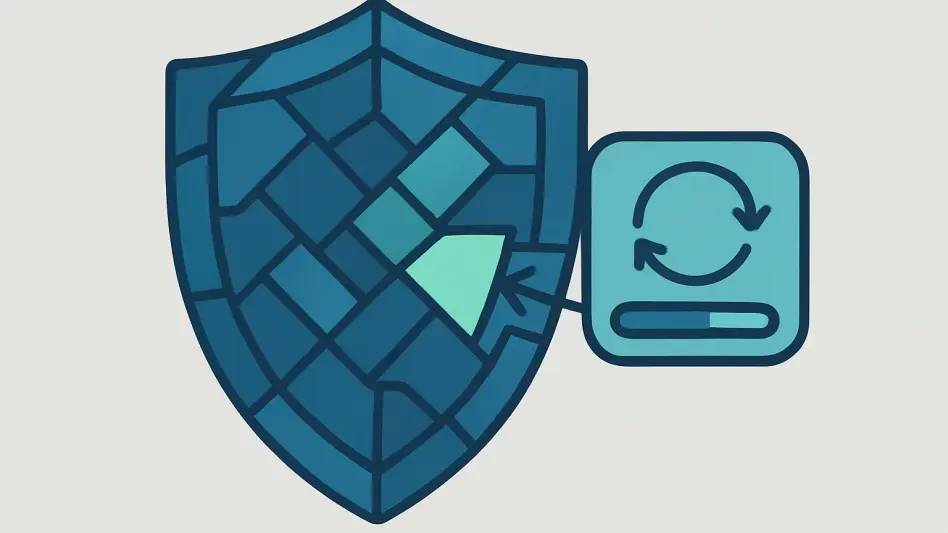In an era where cybercrime has evolved into a sophisticated global enterprise, a recent coordinated effort by international authorities has struck a significant blow against the shadowy infrastructure that enables these illicit activities, marking a pivotal step in disrupting the digital underworld. The Five Eyes intelligence alliance, comprising the United States, United Kingdom, Australia, Canada, and New Zealand, has launched a targeted campaign against bulletproof hosting providers—services that offer cybercriminals a safe haven to conduct ransomware attacks, phishing schemes, and data extortion with near impunity. These providers create a veil of anonymity for threat actors, making it challenging for law enforcement to track and disrupt their operations. This latest initiative, involving sanctions and strategic partnerships, signals a shift toward dismantling the foundational elements of cybercrime rather than merely reacting to individual attacks. As malicious actors continue to exploit digital infrastructure, this multinational effort underscores the urgency of addressing the root enablers of online threats.
Unveiling the Sanctions on Key Providers
The core of this international crackdown lies in the sanctions imposed by the U.S. Treasury Department, alongside counterparts in the United Kingdom and Australia, targeting two notorious bulletproof hosting providers and their affiliates. Media Land, a Russia-based entity, has been singled out for its role in supporting ransomware groups like LockBit, BlackSuit, and Play, with its infrastructure facilitating cybercrime for over a decade. Three of its leaders—Alexsandr Volosovik, Kirill Zatolokin, and Yulia Pankova—along with associated companies such as ML Cloud, Media Land Technology, and Data Center Kirishi, face punitive measures aimed at crippling their operations. Additionally, sanctions extend to entities linked to the previously targeted Aeza Group, including U.K.-based Hypercore and individuals like Maksim Vladimirovich Makarov and Ilya Vladislavovich Zakirov. These actions focus on disrupting networks that have persistently evaded prior restrictions by rebuilding under new guises, highlighting the resilience and adaptability of such providers in the face of enforcement.
Beyond the immediate targets, this initiative reveals the broader intent to choke the financial and operational lifelines of bulletproof hosting services. The sanctioned companies, including Smart Digital Ideas DOO and Datavice MCHJ tied to Aeza Group, demonstrate how these providers often operate through a web of affiliates to maintain functionality despite international pressure. By focusing on both individuals and entities, authorities aim to create a ripple effect that complicates the ability of cybercriminals to access reliable infrastructure. Experts note that while sanctions alone may not fully dismantle these operations, they impose significant hurdles, such as restricted access to banking systems and global markets. This strategy seeks to erode the profitability and sustainability of hosting services that cater to malicious actors, pushing them into riskier and less stable operational environments where they are more vulnerable to further intervention by law enforcement agencies worldwide.
Disrupting the Backbone of Cybercrime
Bulletproof hosting services are often described as the backbone of modern cybercrime, providing the critical infrastructure that enables a wide array of illegal activities. From ransomware deployment to malware distribution, these services offer cybercriminals the tools to conceal their identities and maintain persistent threats against individuals, businesses, and governments. The recent actions by the Five Eyes alliance aim to disrupt this ecosystem by targeting providers that have long operated with relative impunity. Allan Liska, a cybersecurity expert from Recorded Future, emphasizes that while sanctions may not equate to a complete shutdown, they create substantial operational friction for threat actors. This friction manifests as difficulties in securing payment processing, maintaining server uptime, and establishing new partnerships, all of which are vital for sustaining their illicit enterprises in an increasingly hostile digital landscape.
The complexity of dismantling bulletproof hosting infrastructure cannot be understated, as it often intertwines with legitimate internet systems. This integration poses a unique challenge for authorities who must balance aggressive enforcement with the risk of collateral damage to lawful online activities. To address this, the Five Eyes alliance, in collaboration with the Netherlands, has released a mitigation guide for defenders, offering actionable strategies to counter cybercrime enabled by such services. Madhu Gottumukkala, acting director of the Cybersecurity and Infrastructure Security Agency, has highlighted the pivotal role of bulletproof hosting as a facilitator of digital threats, underscoring the urgency of sustained intervention. By focusing on these foundational elements, the initiative moves beyond reactive measures against individual hackers, aiming instead to weaken the broader ecosystem that supports and amplifies their destructive capabilities across borders.
Challenges and Future Strategies
Despite the progress marked by these sanctions, challenges persist in fully neutralizing the bulletproof hosting ecosystem due to its deep integration with legitimate internet infrastructure. Providers like Media Land often rely on peering partnerships with entities such as JSC RetnNet in Russia and RETN Limited in the U.K., which allow their malicious services to remain accessible on the global web. Zach Edwards from Silent Push argues that without stronger action to sever ties with these partners, the infrastructure of sanctioned providers is likely to stay operational. This resilience illustrates a critical gap in enforcement, where the adaptability of threat actors and their ability to exploit legitimate systems continue to outpace isolated punitive measures, necessitating a more comprehensive approach to disrupt their connectivity and influence.
Looking ahead, the fight against bulletproof hosting demands broader collaboration with internet service providers and peering partners to cut off access at critical junctures. The consensus among experts is that sustained law enforcement pressure, coupled with international cooperation, is essential to move beyond the reactive cycle of targeting individual actors. This strategic shift focuses on systemic change, prioritizing malicious hosts as a primary concern to prevent cybercrime at its source. The mitigation guide released by the Five Eyes and the Netherlands serves as a blueprint for defenders, offering tools to identify and counteract threats enabled by these services. As authorities refine their tactics, the emphasis remains on building a unified front that not only punishes enablers of cybercrime but also fortifies global digital defenses against an ever-evolving threat landscape.
Reflecting on a Unified Front
The coordinated sanctions against Media Land, Aeza Group affiliates, and associated individuals by the U.S., U.K., and Australia represent a pivotal moment in the ongoing battle against cybercrime infrastructure. These measures aim to hinder the operations of ransomware and other malicious activities by disrupting bulletproof hosting services that have long served as enablers of global threats. The collaboration demonstrates a commitment to addressing the root causes of digital crime, moving beyond surface-level responses to strike at the heart of illicit networks. While the immediate impact varies, the intent is clear: to impose operational challenges that will deter future reliance on such services. As the dust settles, the focus shifts to reinforcing these efforts through strategic partnerships and defensive innovations, ensuring that the momentum gained from this crackdown paves the way for lasting change in the cybersecurity domain.








